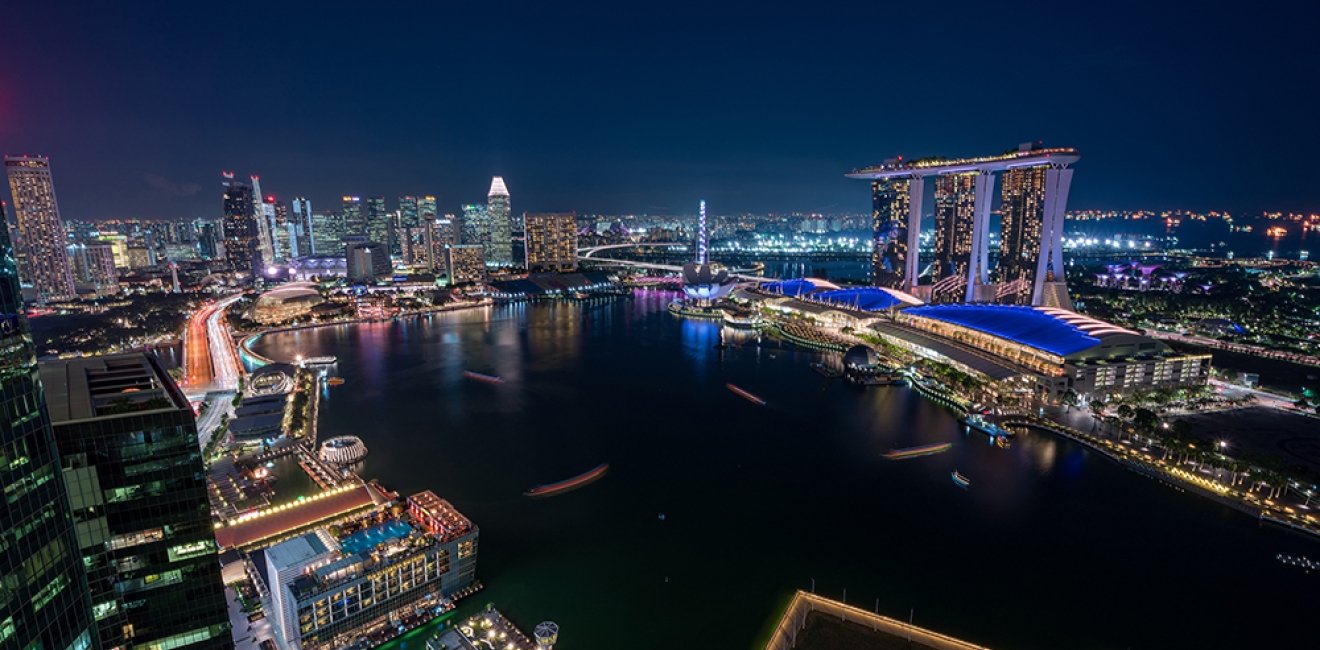
A blog of the Indo-Pacific Program
The Conservative’s landslide victory in the latest UK elections led to a collective sigh of relief in the global financial markets. The win is expected to lead to political stability that has been much-needed since the 2016 referendum when Britons voted to leave the European Union. Whether for or against Brexit, the past three years have made it difficult for the country to focus on anything but its future relations with the Continent. Now, though, expectations for Prime Minister Boris Johnson to deliver beyond simply getting Brexit done and follow through on his vision of Global Britain are on the rise. What’s more, the inspiration for future British growth is coming not from the United States or Europe, but from Singapore.
The Southeast Asian nation has long been the darling of the Tory party leadership, beginning with none other than Johnson’s own inspiration, Margaret Thatcher. As the Iron Lady pushed through reforms to enhance Britain’s competitiveness in the 1980s, she was inspired by Singapore’s ability to attract foreign investment, provide world-class infrastructure, and unite the city-state in striving for economic success. Since then, Singapore’s achievements have only continued to grow, in contrast to some of its fellow Asian tigers which have lost their sheen over the years.
Many governments within Asia and beyond are increasingly attracted to the efficiencies of Singapore
It is, of course, easy enough to point out the downside of Singapore’s successes, not least its heavy-handed approach to keeping tabs on free speech and its narrowly defined approach to social inclusion. Nevertheless, many governments within Asia and beyond, from emerging as well as industrialized countries, are increasingly attracted to the efficiencies of Singapore. Certainly, its competitiveness is nothing short of remarkable. After all, it’s been nearly three decades since the World Bank released its East Asian Miracle report that touted the achievements of the so-called tigers, with Japan standing at the head of the pack. Even though Japan continues to be the world’s third-largest economy, the domestic challenges it faces in remaining competitive have kept it from being a model of economic inspiration. Meanwhile, Hong Kong and to a lesser extent Taiwan also face the ever-lingering threat of retaliatory action by Beijing that could jeopardize their growth trajectory. Meanwhile, South Korea’s domestic challenges as well as uncertainties regarding relations with Pyongyang weigh heavily on its economic prospects. Singapore, on the other hand, is seen by countries as far-ranging as Rwanda and Britain to be the source of inspiration for future economic success and political stability. Certainly, the fact that Singapore has continued to punch above its size not just economically, but on the security front and increasingly in global affairs.
Still, the Singaporean model may be particularly useful to note for its ability to navigate the choppy waters of diplomacy at a time when Southeast Asia is facing upsets in the status quo. Its larger neighbors including the Philippines, Malaysia, Vietnam, and Indonesia are all trying to balance preserving close economic relations with China on the one hand, whilst redefining their relations with the United States on the other.
The UK can certainly learn a great deal from Singapore on how to remain competitive in spite of being surrounded by bigger, seemingly stronger countries.
For the firmly established Johnson government, the most pressing issue will be to ensure that the British economy continues to expand as it seeks to get Brexit actually done, even though the process could take years even in the best-case scenario. At the same time, Britain will have to redefine its relations with the European Union as well as with individual European nations. London will also have to reach out to established allies in North America as well as in Asia to reassure them that it can remain an attractive destination for investments, and that the Tories’ vision for a less European-centric Britain can actually make the country stronger in the long run. The UK can certainly learn a great deal from Singapore on how to remain competitive in spite of being surrounded by bigger, seemingly stronger countries.
Image: Hit1912 / Shutterstock.com
Follow Shihoko Goto, deputy director for geoeconomics and senior associate for Northeast Asia, on Twitter @GotoEastAsia.
The views expressed are the author's alone, and do not represent the views of the U.S. Government or the Wilson Center. Copyright 2019, Asia Program. All rights reserved.
Author


Indo-Pacific Program
The Indo-Pacific Program promotes policy debate and intellectual discussions on US interests in the Asia-Pacific as well as political, economic, security, and social issues relating to the world’s most populous and economically dynamic region. Read more





